The battle for live music in London
When a campaign group won a legal battle over gigs playing in south London’s Brockwell Park this summer, it opened up a wider debate around festival ownership, independence and public access to green spaces in the capital
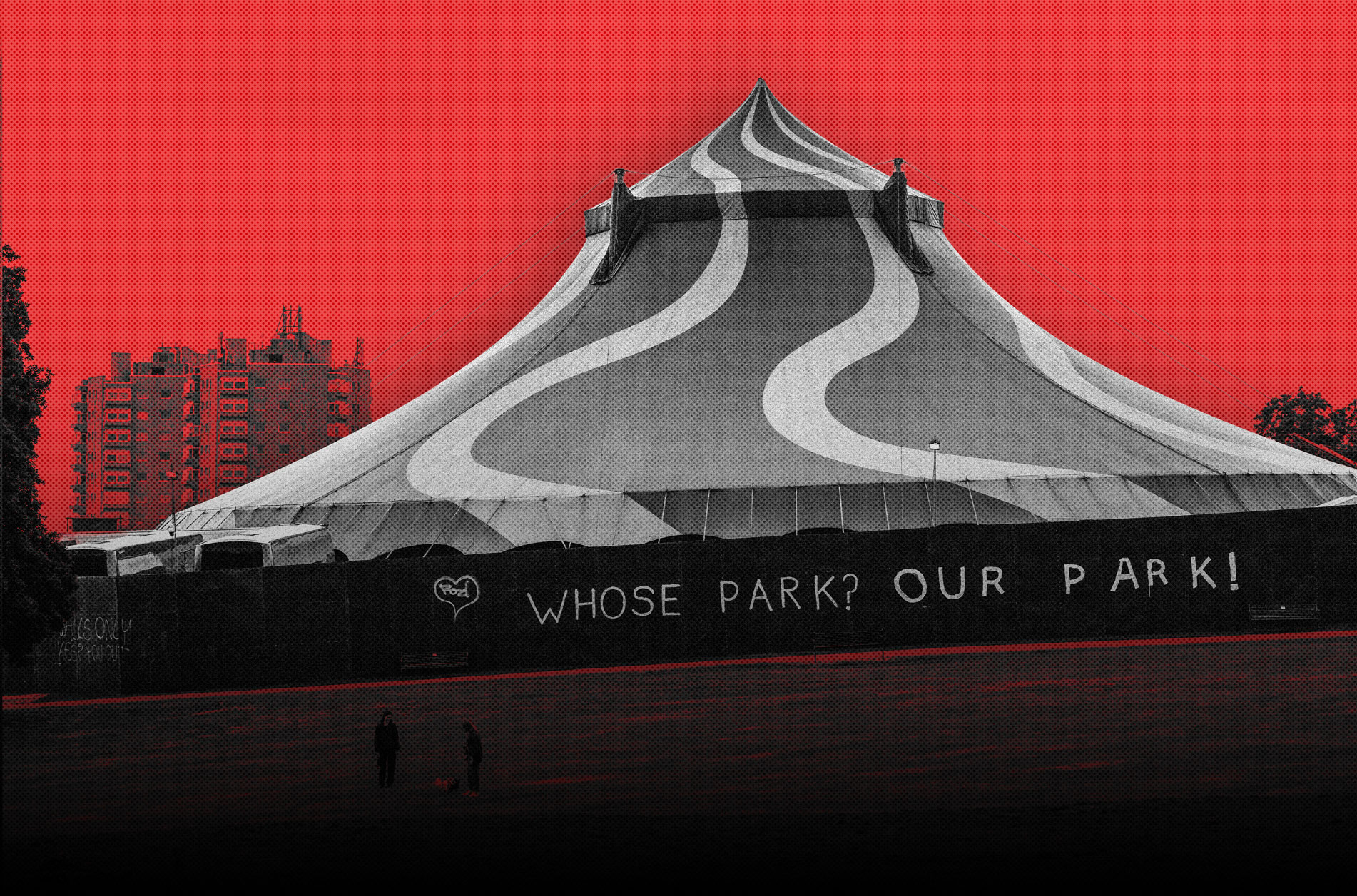
If you walked around the giant green structures that fenced off around half of south London’s Brockwell Park for more than five weeks over May and June, it was clear that the local community was in revolt. “Whose park? Our park!” read the largest and most notable sign, with another hitting out at “council capitalists”. Others took a more humorous route to sharing their discontent (“You love expensive pints!”… “You stole my smoke spot!”… “You fucked our park, we fucked your wall!”).
The fences were erected in the lead-up to the park’s Brockwell Live series of day festivals, including Wide Awake, Field Day, Mighty Hoopla and Cross the Tracks. At the same time the graffiti was emerging, a local campaign group called Protect Brockwell Park had just won a legal case against Lambeth Council, with a judge declaring that the festivals did not have the correct planning permission to go ahead.
Local resident Rebekah Shaman, leader of Protect Brockwell Park, cited in court a law stating that festivals can only use public parks for 28 days per year without gaining additional planning permission, and that Brockwell Park would be used for 37 days in 2025.
Protect Brockwell Park said on Instagram at the time: “We regret that legal action became necessary. The applicants and Lambeth Council created a binary situation with no room for compromise, and built in risks and delay by submitting inappropriately late applications, as has happened in previous years.”
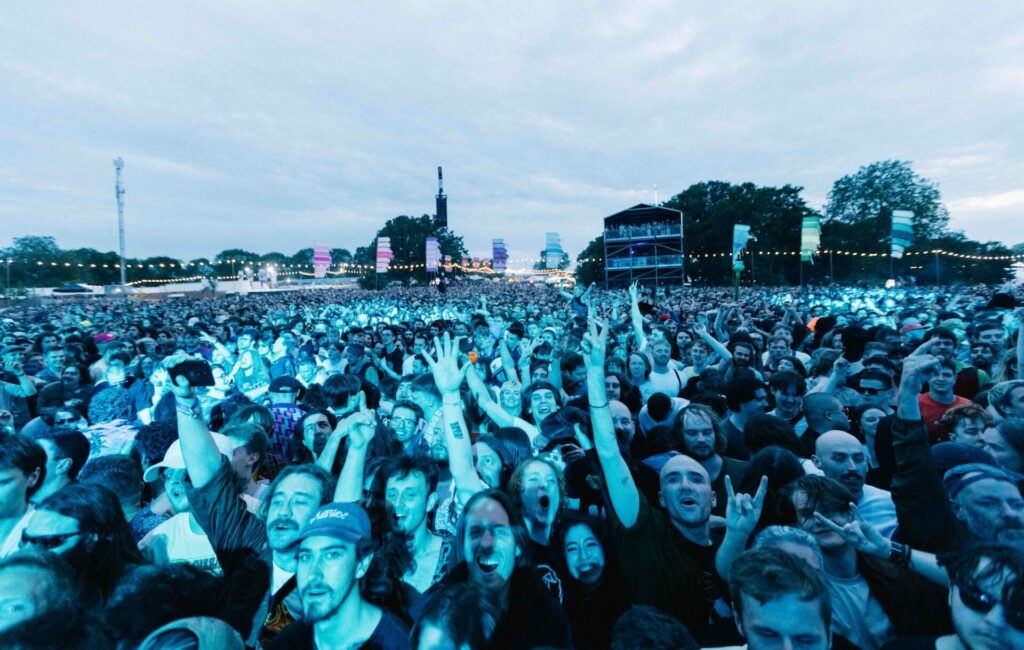
Responding to the ruling, Cllr Donatus Anyanwu, Lambeth’s Cabinet Member for Stronger Communities, said: “The council acknowledges last week’s decision by the High Court and is reflecting on our processes relating to events in our parks. However, we have also seen inaccurate commentary that suggests that the judgment renders all events in our parks unlawful and this is just not true.
“I recognise that that there are strong feelings on all sides in our local community about these events, and we continue to seek a middle ground that enables a fantastic programme of events to take place in a section of the park, whilst making sure the entire park remains open for the rest of the year, including over the school summer holidays.”
A week later, Brockwell Live confirmed that their 2025 events would go ahead as planned. “We take our stewardship of Brockwell Park seriously,” they said at the time. “As we prepare to deliver these much-loved, culturally significant events, we remain fully committed to its care, upkeep and long-term wellbeing.”
A note on one of the green fences outside the park’s main entrance also read: “We understand that not everyone supports events taking place in Brockwell Park, and we fully respect your right to express your views. However, we kindly ask that you treat our staff with courtesy and respect. They are here to do their jobs and have a right to feel safe while doing so.”
The 2025 festivals may now be in the rear-view mirror, but the debate is raging on. Protect Brockwell Park has launched a new legal challenge, alleging that tickets going on sale for Field Day 2026, to be held in the park, is unlawful, with the group labelling it a “brazen attempt” to sidestep the law.
“The events have become too big and unsustainable for this sized park,” Protect Brockwell Park spokesperson Jen Hawkins — also a qualified solicitor — tells Rolling Stone UK. “I think that’s the ultimate problem. They’ve now got to a scale which just doesn’t work for both the local public and for nature.”
Last year, a disaster that Hawkins says was waiting to happen finally came to pass. Torrential rain around the festivals led to one day of Mighty Hoopla being cancelled, with the park not returning to normal until the autumn.
“[The council] love to blame the weather, [but] climate change is happening and we cannot control weather,” she says. “That definitely compounded the issues last year, but the ultimate problem is the scale.”
While the fences were removed in Brockwell Park for the remainder of the summer, legal proceedings rumble on and the conversation around public access to green spaces in London continues.
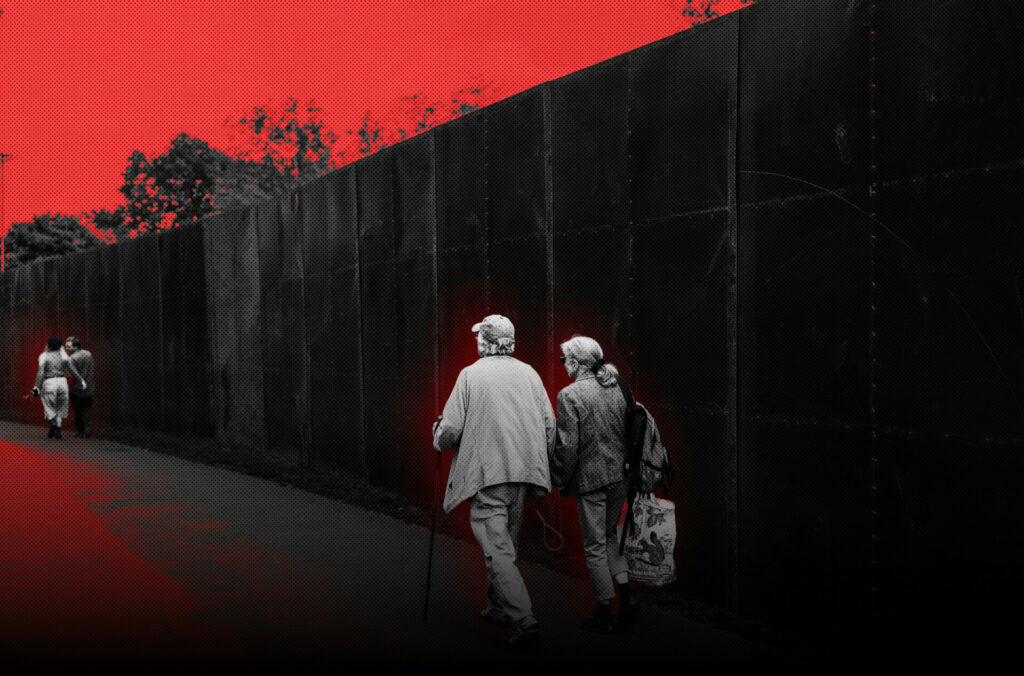
While campaigns like that of Protect Brockwell Park give rise to questions over whether London’s parks should host large festivals, they also have an undeniable impact on ticket sales, which are crucial for the events to take place. This leads to an important consideration: what would be the cultural fallout if such live events were to stop running in London’s parks?
Brockwell Park itself has a long musical history. It has hosted the free Lambeth Country Show every summer since the 1970s, and also welcomed over 100,000 people in 1978 for the legendary Rock Against Racism gig. In the mid-2010s, it began hosting paid-for events organised by Lambeth Council, beginning with the short-lived Sunfall and then the larger Field Day and Lovebox. In 2018, locals mounted a similar legal challenge to this year, which forced Lovebox to move to west London’s Gunnersbury Park at the last minute. Brockwell Live have hosted their series of events in the park since 2021.
In a statement at the time of Protect Brockwell Park’s legal challenge, Michael Kill, CEO of the Night Time Industries Association, said that the cancellation of the festivals would prove a “dark day” for London’s nightlife, adding: “We are witnessing a worrying trend — from the aggressive sanitisation of Soho by Westminster Council, the surreal objection of the Blue-note Jazz Club, to this latest attempt to halt vibrant, well-managed cultural events in south London. This isn’t about protecting parks — it’s about stifling culture, and the consequences are far-reaching.”
“The events have become too big and unsustainable for this sized park.”
Jen Hawkins, Protect Brockwell Park
Speaking to Rolling Stone UK after the Brockwell Park events, Kill says: “Public and community access [to parks] is very important, but also there is culture there that I think is really important, that we need to start to consider. We have to recognise how important some of these parks are in terms of sustainability, but you also have to recognise that there are dwindling amounts of spaces that have the infrastructure to support [these events], particularly within inner cities. These parks are seen as opportunities to present concerts and culture that are really important to developing economic impact and drawing people in.”
Kill believes the Brockwell Live legal challenge was “poorly conceived and poorly delivered in terms of communication and transparency, which has caused such mayhem and driven us to a point of legal challenge, which I personally don’t feel it needed to go to.”
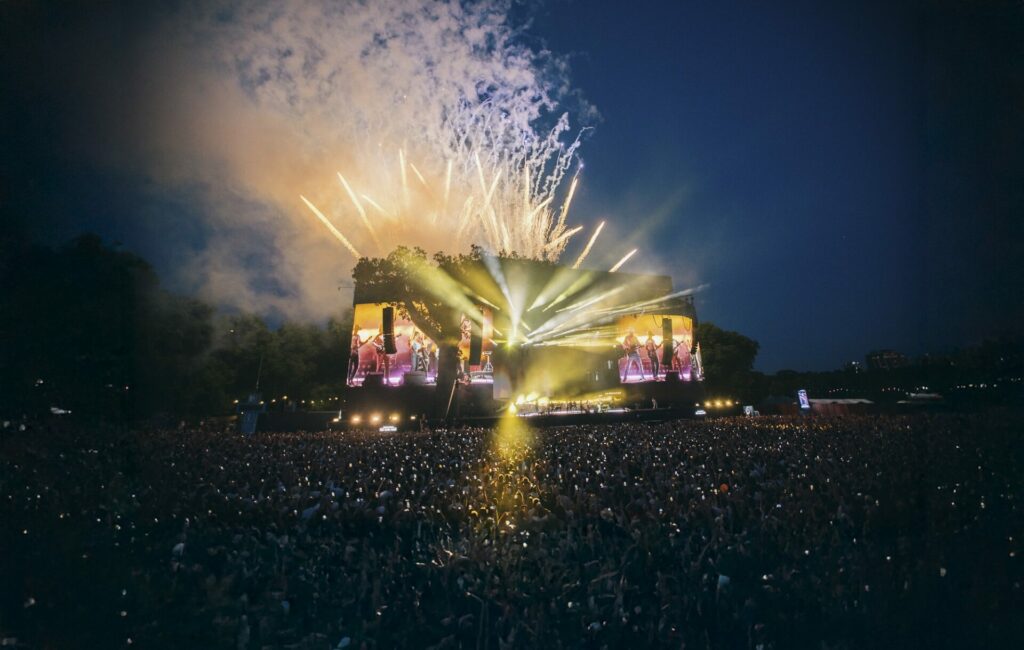
On top of these issues, a series of boycotts surrounding one of Brockwell Park’s festivals has led to the emergence of a bigger debate over global politics that covers the breadth of London’s bustling summer festival calendar. At the same time as the legal challenge from Protect Brockwell Park, swathes of artists were pulling out of their performances at Field Day as musicians acted on their conscience. An open letter signed by over 50 artists alleged that KKR, the parent company of Superstruct, who own Field Day and nearly 80 other festivals, are “known to invest in companies which develop Israeli underground data centres, and advertise real estate on illegally occupied land in Israeli settlements in the West Bank”.
In response, Field Day shared a statement before the festival stating that their ownership status is “not the choice” of the festival. Later, they issued a second statement, apologising that their first “did not explain in full the position of the Field Day team or directly address legitimate concerns about investments in Israel by KKR”. The second message added: “We would like to say, clearly and directly, that we stand with the people of Gaza and support the peaceful aims of the Palestinian civil organisations and everyone working tirelessly to give them a voice.”
Mighty Hoopla, also owned by Superstruct, shared their own statement, saying that they “wish to state our clear opposition to KKR’s unethical investments”, adding: “No owner or investor will ever change what Mighty Hoopla stands for and the community it serves.”
In a statement in response, Superstruct wrote: “What’s happening in Gaza and Israel has deeply impacted our community. We are horrified by the scale of suffering and the ongoing crisis. These events have rightly raised urgent questions, and strong emotions, including from our artists, our people and our audiences. We join those calling for an immediate end to the conflict, and for humanitarian aid to reach those suffering in Gaza without delay.”
Of their ownership structure, they added: “Our owners, made up of our promoters and several investment firms, support us to achieve the highest standards and best experience that fans and artists rightly expect. Operationally, Superstruct is independently run, and makes its own decisions based on what is in the best interests of our fans, artists, partners and colleagues. Festivals are also empowered to make their own commercial decisions to reflect the changing world in which they operate.”
The controversy was reminiscent of 2024’s Bands Boycott Barclays campaign, which made headlines when hundreds of artists pulled out of festivals including The Great Escape, Download and Latitude, due to the bank’s financial ties with Israel.
In response to the boycotts, a Barclays spokesperson said at the time: “We provide vital financial services to US, UK and European public companies that supply defence products to NATO and its allies. Barclays does not directly invest in these companies.” Later in the summer, Latitude, Download and Isle of Wight festivals announced that they had dropped the bank as a sponsor.
The Bands Boycott Barclays campaign signalled a shift as both artists and fans became more engaged and knowledgeable regarding the ownership and sponsorship of events they were performing at or paying to attend. As the furore over KKR demonstrated, this ethos has continued into 2025. The campaign also resulted in a lean towards independently run events, but these face an additional set of challenges.
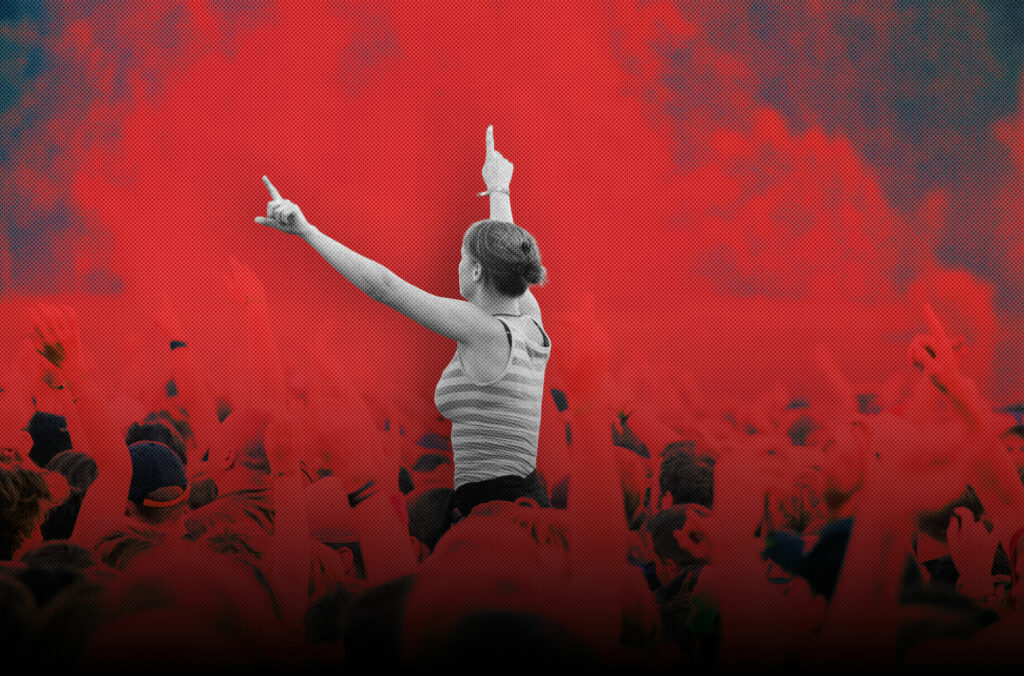
Earlier this year, in the days leading up to the independently run Wide Awake, the first festival of the Brockwell Live series, event organisers sent ticketholders an email, frankly sharing their concerns over lower ticket sales following both the legal challenge from Protect Brockwell Park and a terror charge against Mo Chara of the festival’s headliners, Kneecap.
“As a wholly independent festival, we can’t really take the risk five years in, that we don’t do everything we possibly can to hit our breakeven,” festival founder Keith Miller wrote. “Our costs have doubled since we started the event five years ago and they continue to rise day by day. We’ve also had some pretty tasty legal costs to fork out for of late.”
At the same time of the first weekend of Brockwell Live events, a few miles down the road in Peckham Rye Park, independent London festival GALA was celebrating its 10th anniversary. Focusing on underground electronic music as well as more established artists, the festival has become a go-to for dance music fans in the capital and beyond, with this year’s festival headlined by Floating Points, Caribou and Avalon Emerson.
“I believe there’s still space for independent festivals to thrive, but it’s going to take solidarity and conscious support from everyone who cares about the scene.”
Giles Napier, GALA Festival
Of their reasons for starting the festival, co-founder Giles Napier tells Rolling Stone UK: “We just saw a gap and wanted to offer something that felt more intimate and more considered.” Napier describes a London festival landscape which has changed dramatically in the decade since GALA launched.
“We are lucky that demand for GALA continues to grow year on year, but the climate for independents is getting harder,” he says, with the organisers having also hosted a new festival called RALLY in Southwark Park since 2023. “Aside from rising costs across the board, the influence of corporates has led to heavily inflated artist fees and aggressive exclusivity terms. These players can afford to pay over the odds and risk money in ways independents can’t.
“The threat from corporate monopolies — and the homogeneity they bring — is very real, so the future depends on the choices we make now,” Napier adds. “I believe there’s still space for independent festivals to thrive, but it’s going to take solidarity and conscious support from everyone who cares about the scene.”
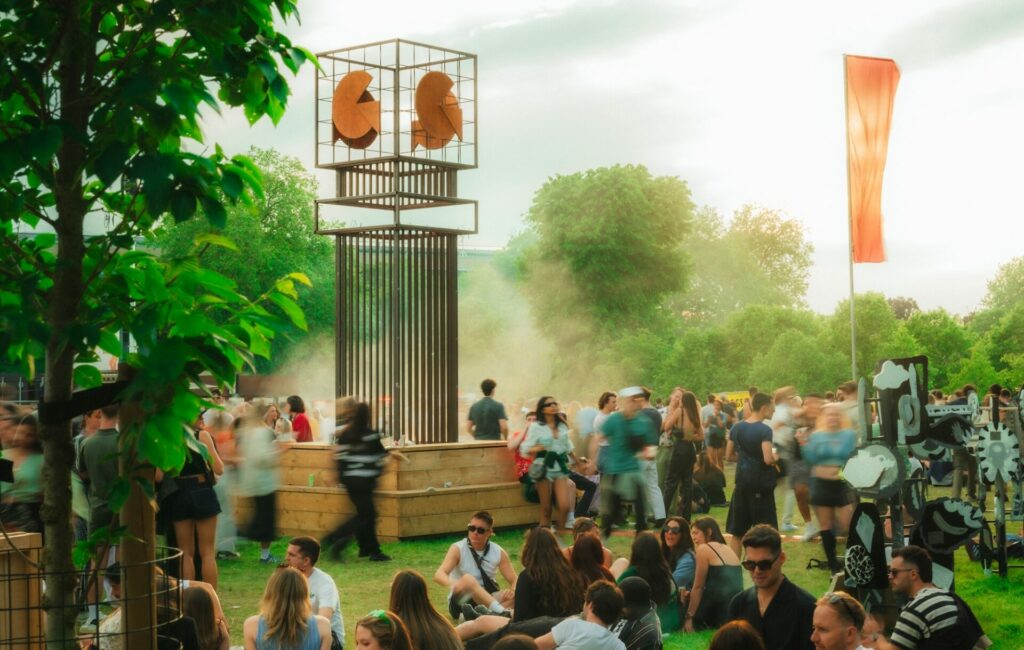
As with Brockwell Live and Lambeth, GALA work closely with Southwark Council on the leasing of Peckham Rye Park and the mitigation of their impact on the land and local residents. “We are of course aware that hosting 10,000 people a day will inevitably impact the grounds,” he says. In recognition of this, a free community event called On the Rye is held the day after the festival’s final programming. “We hope this also helps to offset some of that impact and potential inconvenience we cause,” says Napier. Similar events are held in Hackney’s Victoria Park around All Points East, and for the annual BST Hyde Park series, as well as in Brockwell Park.
For Hawkins, the legal proceedings this summer and continued challenges heading into 2026 set a precedent for the use of London’s green spaces for live music. “I actually think it was for the best that they went ahead this year, because it’s all about future precedent for us, and securing that these things are done properly in the future,” she says, adding that similar campaign groups across London and the UK have been liaising with Protect Brockwell Park since the ruling, describing them as “very inspired” by the situation.
Greater transparency is needed, according to Hawkins. “We’d just love the council to be more transparent about where the money is being spent, what money is being raised, and what the benefits of this are for local people,” she says. “Because at the moment, it’s impossible. How can we see the events [going ahead] more sustainably in the future?”
Communication and openness are key to a healthier relationship between residents, councils and event organisers, agrees Kill. “Let’s take everyone into account and build a more robust foundation where everyone’s got input,” he says. “Of course there are going to be tough discussions, but that’s something you can only deal with when you are sat around the table communicating.”
Taken from the August/September issue of Rolling Stone UK, out now. Subscribe to the magazine here.
